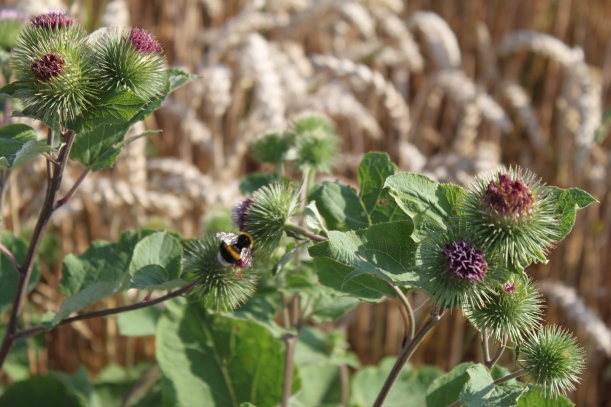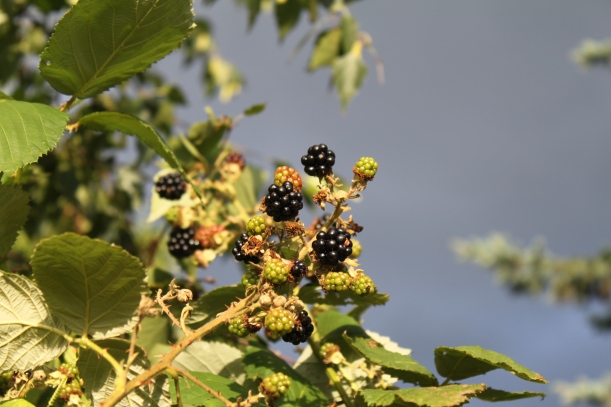
Close your eyes for a moment and wipe every notion of “it’s this way because it has always been this way” from your mind.
Now let’s try a thought experiment.
What does a human need to survive? The very basic needs? You’ll probably find three, just as Jose Luis Vivero Pol found in his paper “Food as a Commons: Reframing the Narrative of the Food System“: Food, water, and air.
From a human perspective, the commons are those goods essential for the survival of each and every human being and food, water and air perfectly fit that definition. Air, food and water are widespread on Earth and easily available. The three essentials are limited, as Earth is finite, but renewable resources and they are produced by nature in a cyclical process. Food and water used to be freely available until the domestication of crops and livestock, when property rights began to be established. As they are key elements for our survival they can be considered as fundamental human rights, closely linked to the most fundamental one: the right to life. In that sense, they should be guaranteed to each and every one.
(Vivero Pol, 2013, p. 5).
Food, water, and air. Without these three goods, it is undoubtedly impossible for a human to survive. Do you agree that, from an ethical perspective, they thus deserve to be guaranteed to each and every human that is born onto this planet? Guess what – the United Nations, the representation of (close to) all states of the world, agrees.
Actually, food is a human right since 1945 and more precisely defined since 1963; water has been recently upgraded to such category by the UN General Assembly in 2010 (United Nations, 2010), whereas air is still so abundant and accessible that has not yet being even considered as a right or as an exploitable natural resource.
(Vivero Pol, 2013, p. 5).
Alas, despite the fact that the right to food has been accepted as a fundamental human right, from a UN perspective it is still only a right that countries should slowly strive towards providing. A big part of that idea is that food insecurity is closely linked to poverty and access to food – even if countries have enough food to feed everybody, if prices are too high then the poor will go hungry anyhow, as Amartya Sen pointed out in his landmark essays.
Now, here comes the really radical part of Vivero Pol’s argument and I encourage you to jump into the rabbit hole with him and me – what if food were not a private good that is traded on the market like any commodity? What if, instead, it were seen as a commons that belongs to all of us, equal to air, sunlight or ‘the environment’? Impossible you say? Let’s hear what Jose has to say:
One could argue that currently most foods have a price in the market, and that price deters many people to freely access to food. Although true, this is a superb example of a social construction that can be modified by social norms: proprietary rights are nothing but a set of social and legal norms, whose nature and specificities are determined by each society. Many societies have considered, and still consider, food as a common good, as well as forests, fisheries, land and water, and the consideration different civilisations and human communities have assigned to natural resources is rather diverse and certainly evolving.
(Vivero Pol, 2013, p. 10).
His article goes very much in depth on the economic definition of a common good and how this could be reframed when concerning food (which, if you are a natural resource economist, is fascinating in itself), but I am more interested in the general idea – or, maybe more accurately, the general utopia. What would reframing food – or, alternatively, food security – as a public good mean in practice?
First of all, stopping the ultra-commodification of food. As Vivero Pol points out, treating food as just another commodity rather than the life force that sustains us has many interlinked consequences, including the fact that food crops are used for other alternative uses (take animal feed or biofuels) instead of feeding people, merely based on where the price is highest; that we can speculate on rising food prices and influence prices on the ground through financial markets; that we are witnessing extreme resource-grabbing activities by private equity firms and governments concerned with future access to land, water, and fossil fuels; that all other dimensions of food (cultural, ethical, rights-based ones) are completely overshadowed by the profit-maximizing motto of private food corporations; and that market-based interactions are unable to solve issues of food security since the market’s base premise is that only those that can pay for it are able to fill their bellies.
Should it really be that way?
The author then notes that many of the dimensions of “food” are already to a certain extent public, or common – traditional agricultural practices and knowledge, non-patented genetic resources for crops and animals, modern science-based research developed by public institutions (such as public universities and research centres), cuisine, recipes and gastronomy, food safety considerations, and even some foods themselves, such as wild fruits and animals as well as fish stocks. The only consensus on the privacy of it so far is on cultivated food, but even here there is a sliding scale – what if seeds gained through local seed exchanges are planted on land owned by the government, irrigated by rainfall, fertilized by manure and tended by members of the community in labor exchange schemes rather than by hired laborers? Why do we so easily accept the fact that all inputs into our food system have to be privatized, monetized, yielding higher and higher profits to a select few while endangering the literal livelihood of many?

The article gives a ton of examples on how embracing food as a “commons” could work, including but not limited to
- Food being kept out of traditional trade agreements such as the WTO framework and instead being organized by “a particular governing system for production, distribution and access to food”;
- A universal Basic Food Entitlement through which the State guarantees a minimum level of food for all its citizens;
- Crowdsourced innovations in the food sector and creative commons-based licensing systems for food-related elements;
- Civic-collective actions to encourage local food systems;
- Food Trusts that collectively “own farm land and water resources, produce food, lend money to low-carbon groups and guarantee food for every citizen through a basic food entitlement”;
- and many more.
The more I read of this article, the more I actually started seeing the practical implications and not just the Utopian ones. And after first asking myself “why?!?” when I read the headline, now I’m thinking… “why the heck not?”
What is your take on the issue? Should food remain a private commodity good?
Love these examples at the end!
There is so much potential if you let your mind run free, no?
Reblogged this on BLYSSfully Yours… and commented:
Look at the examples at the end…
Mmm. Capitalism and freedom. Capitalism and control. Capitalism doesn’t really go very happily along with anything but itself…
The scenario you discuss could be very close to state controlled farming and/or to the old feudal systems…neither are/were without benefits, but also neither are/were without drawbacks too.
Many growers and food producers have worked hard to build up their “businesses” (because that is what most of them are) and they’d be no more likely to welcome state(s) intervention and fiddling with “market forces” than any other manufacturer or business would. (lots of parentheses and “” because I’m very mindful of the interventions that already exist!)
Very good points, Kay! I agree that state-controlled farming has been tried, and failed, in the past. But the way I understand the idea is more a bottom-up-and-top-down collaboration… Maybe a little idealist after all but even some steps into this direction (aka the de-commodification of food and de-concentration in the food sector) would go a long way I think!
Reblogged this on Shared Harvest and commented:
Certainly something to think about. Why don’t we regard food like we regard air and water?
Hello Janina, thanks for your entry blog and the time devoted to read the paper, and even more for the added value you provided with your comments. I will borrow some ideas and headline-catching sentences to improve the paper. Let´s stay in touch.
Perhaps you may be interested in the latest article on the issue: http://www.shareable.net/blog/why-food-should-be-a-commons-not-a-commodity
Best regards
Jose Luis Vivero
Thank you for writing such an inspiring paper, and thanks so much for your feedback! I agree, let’s stay in touch!